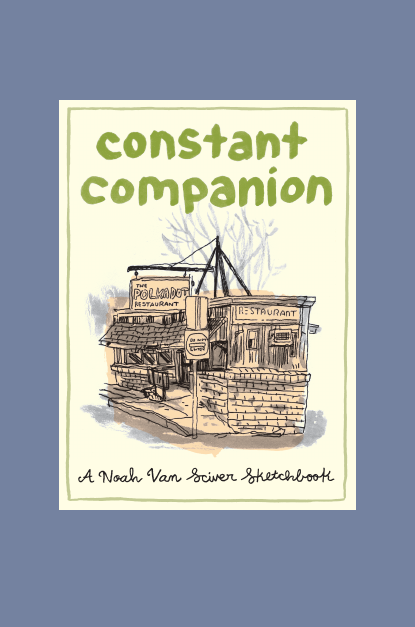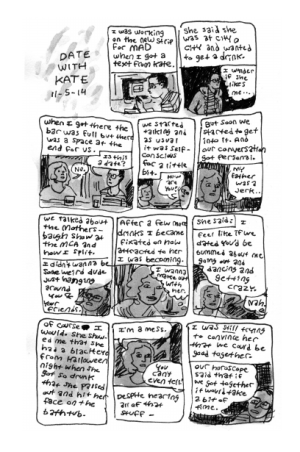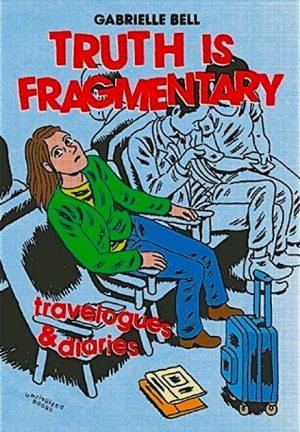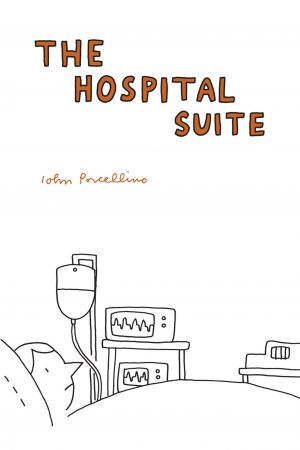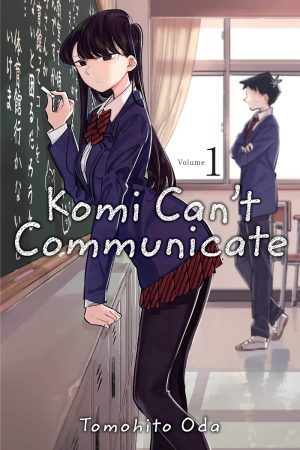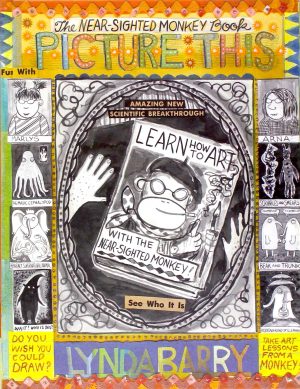Review by Ian Keogh
The title of Constant Companion presumably refers to the status of Noah Van Sciver’s sketchbook.
Although subtitled as that and featuring many illustrations, it doubles as a journal, with Van Sciver a prolific creator of comic strips, their number sufficient to merit a review as a graphic novel. Not that fans of Van Sciver’s polished inked art will need any further excuse to investigate the many illustrations.
The strips are almost all autobiographical and cover 2014-2016 as confessions, travelogues and observations, and while having an immediacy it’s telling that Van Sciver doesn’t just settle for pen and ink, but applies a grey watercolour wash. That begins with first strip ‘A Great Day’, which exemplifies Van Sciver’s understated style by everything being dependent on the title for what’s otherwise an ordinary day out. Yet it’s evidently not. It’s a day of great art, great company and great food.
Many of the early strips concern Van Sciver’s unsatisfying love life, and permitting them to be published is either brave or foolhardy given their brutal honesty. Yet they also induce sympathy for the matter of fact presentation, and a strip titled ‘The Secret to Writing a Very Funny Comic’ has him in a very bad place. As strips not originally intended for publication Van Sciver’s more interested in recording how he feels at any given point than making himself look infallible and confident, and this vulnerability is understandable.
A frustration at minimal success is a continuing theme. With five graphic novels to his name by 2016, Van Sciver is acclaimed by a limited audience, and his daily struggles are laid out in connection with this and in parallel to it. The closing strips concern Van Sciver’s time in Vermont teaching part of a comics class at the Centre for Cartoon Studies in 2016, and these are more knowingly prepared for an audience as there’s no need for Van Sciver to explain his social anxiety to himself.
Readers who have worked their way through Van Sciver’s back catalogue should enjoy commentary on the frustrations and procrastinations of creating it. However, unless you specifically want to know more about Van Sciver himself, his graphic novels are more rewarding experiences, but it’s a rare genius whose private spontaneous observations match their considered work and the converted will find much to enjoy.
